Search titles
Displaying results 151 to 160 of 369.

Bridging Australia and Japan: Volume 1 »
The writings of David Sissons, historian and political scientist
Edited by: Arthur Stockwin, Keiko Tamura
Publication date: December 2016
This book represents volume one of the writings of David Sissons, who for most of his career pioneered research on the history of relations between Australia and Japan. Much of what he wrote remained unpublished at the time of his death in 2006, and so the editors have included a selection of his hitherto unpublished work along with some of his published writings. Breaking Japanese Diplomatic Codes, edited by Desmond Ball and Keiko Tamura, was published in 2013 and forms a part of the series that reproduces many of Sissons’ writings. In the current volume, the topics covered are wide. They range from contacts between the two countries as far back as the early 19th century, Japanese pearl divers in northern Australia, Japanese prostitutes in Australia, the wool trade, the notorious ‘trade diversion episode’ of 1936, and a study of the Japan historian James Murdoch.
Sissons was an extraordinarily meticulous researcher, leaving no stone unturned in his search for accuracy and completeness of understanding, and should be considered one of Australia’s major historians. His writings deal with not only diplomatic negotiations and decision-making, but also the lives of ordinary and often nameless people and their engagements with their host society. His warm humanity in recording ordinary people’s lives as well as his balanced examination of historical incidents and issues from both Australian and Japanese perspectives are a hallmark of his scholarship.
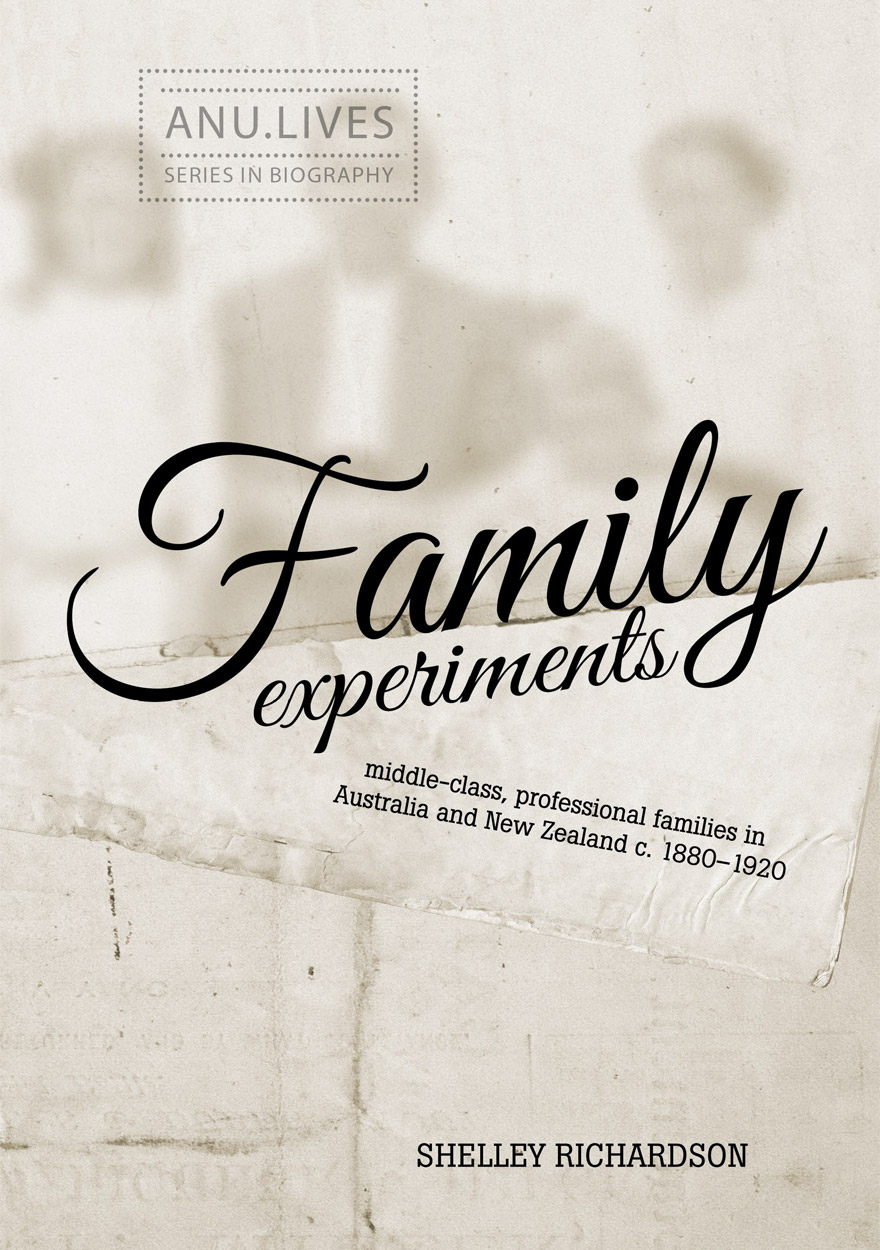
Family Experiments »
Middle-class, professional families in Australia and New Zealand c. 1880–1920
Authored by: Shelley Richardson
Publication date: November 2016
Family Experiments explores the forms and undertakings of ‘family’ that prevailed among British professionals who migrated to Australia and New Zealand in the late nineteenth century. Their attempts to establish and define ‘family’ in Australasian, suburban environments reveal how the Victorian theory of ‘separate spheres’ could take a variety of forms in the new world setting.
The attitudes and assumptions that shaped these family experiments may be placed on a continuum that extends from John Ruskin’s concept of evangelical motherhood to John Stuart Mill’s rational secularism. Central to their thinking was a belief in the power of education to produce civilised and humane individuals who, as useful citizens, would individually and in concert nurture a better society.
Such ideas pushed them to the forefront of colonial liberalism. The pursuit of higher education for their daughters merged with and, in some respects, influenced first-wave colonial feminism. They became the first generation of colonial, middle-class parents to grapple not only with the problem of shaping careers for their sons but also, and more frustratingly, what graduate daughters might do next.

A Difficult Neighbourhood »
Essays on Russia and East-Central Europe since World War II
Authored by: John Besemeres
Publication date: October 2016
Through a series of essays on key events in recent years in Russia, the western ex-republics of the USSR and the countries of the one-time Warsaw Pact, John Besemeres seeks to illuminate the domestic politics of the most important states, as well as Moscow’s relations with all of them. At the outset, he takes some backward glances at the violent suppression of national life in the ‘bloodlands’ of Europe during World War II by the Stalinist and Nazi regimes, which helps to explain much about the region’s dynamics since. His concern throughout is that a large area of Europe with a combined population well in excess of Russia’s could again be consigned by the West to Moscow’s care, not this time by more and less malign forms of collusion, but by distracted negligence or incomprehension.
‘This is a wonderful collection of essays from a leading Eastern Europe specialist. John Besemeres brings a lifetime of experience, profound insights, and an incisive style to subjects ranging from wartime and post-war Poland through contemporary Ukraine to Putin’s Russia. At a time when doublespeak has become the new normal, his refreshing honesty has never been in greater need.’
— Bobo Lo
This publication was awarded a Centre for European Studies Publication Prize in 2015. The prize covers the cost of professional copyediting.

International Review of Environmental History: Volume 2, 2016 »
Edited by: James Beattie
Publication date: September 2016
International Review of Environmental History takes an interdisciplinary and global approach to environmental history. It encourages scholars to think big and to tackle the challenges of writing environmental histories across different methodologies, nations, and time-scales. The journal embraces interdisciplinary, comparative and transnational methods, while still recognising the importance of locality in understanding these global processes.
The journal’s goal is to be read across disciplines, not just within history. It publishes on all thematic and geographic topics of environmental history, but especially encourage articles with perspectives focused on or developed from the southern hemisphere and the ‘global south’.
Download for free
Not available for purchase
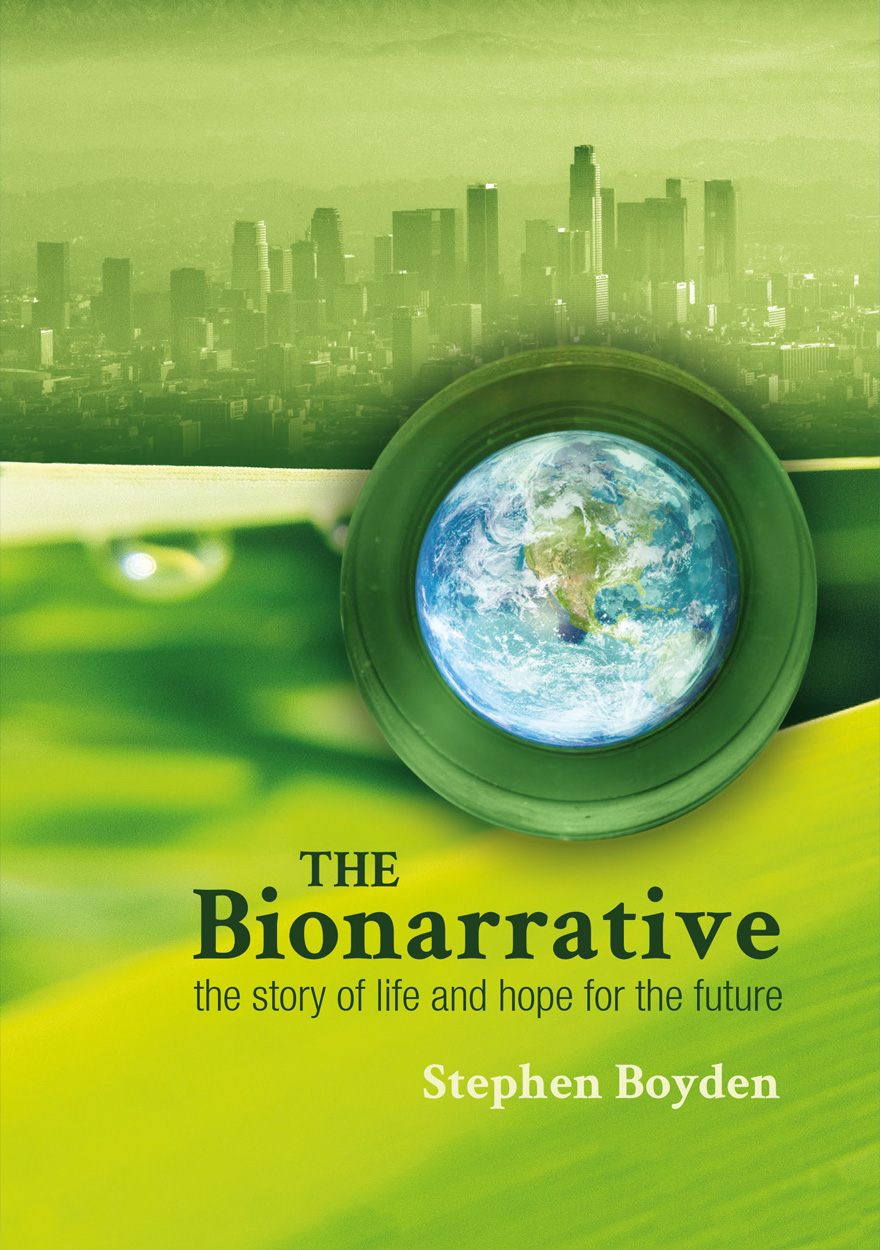
The Bionarrative »
The story of life and hope for the future
Authored by: Stephen Boyden
Publication date: August 2016
This book is for the general reader interested in the human place in nature and the future of civilisation. It is based on the biohistorical approach to the study of human situations. This approach recognises human culture as a new and extremely important force in the biosphere.
The book discusses the evolution of life and the essential ecological processes on which all life, including human civilisation, depend. It describes the conditions of life and ecology of humans in the four ecological phases in human history, with emphasis on the impacts of human culture on biological systems.
It explains how, as cultures evolved, they often came to embrace not only factual information of good practical value, but also assumptions that are sheer nonsense, sometimes leading to activities that caused unnecessary human distress or damage to local ecosystems. These are examples of cultural maladaptation. There have been countless instances of cultural maladaptation in human history.
The days of the fourth ecological phase of human history, the Exponential Phase, are numbered. Cultural maladaptations are now on a massive scale, and business as usual will inevitably lead to the ecological collapse of civilisation.
The only hope for the survival of civilisation lies in radical changes in the worldviews and priorities of the prevailing cultures of the world, leading to a fifth ecological phase — a phase in which human society is truly sensitive to, in tune with and respectful of the processes of life. This is called a biosensitive society. The book concludes with discussion on the essential characteristics of a biosensitive society and on the means by which the necessary cultural transformation might come about.
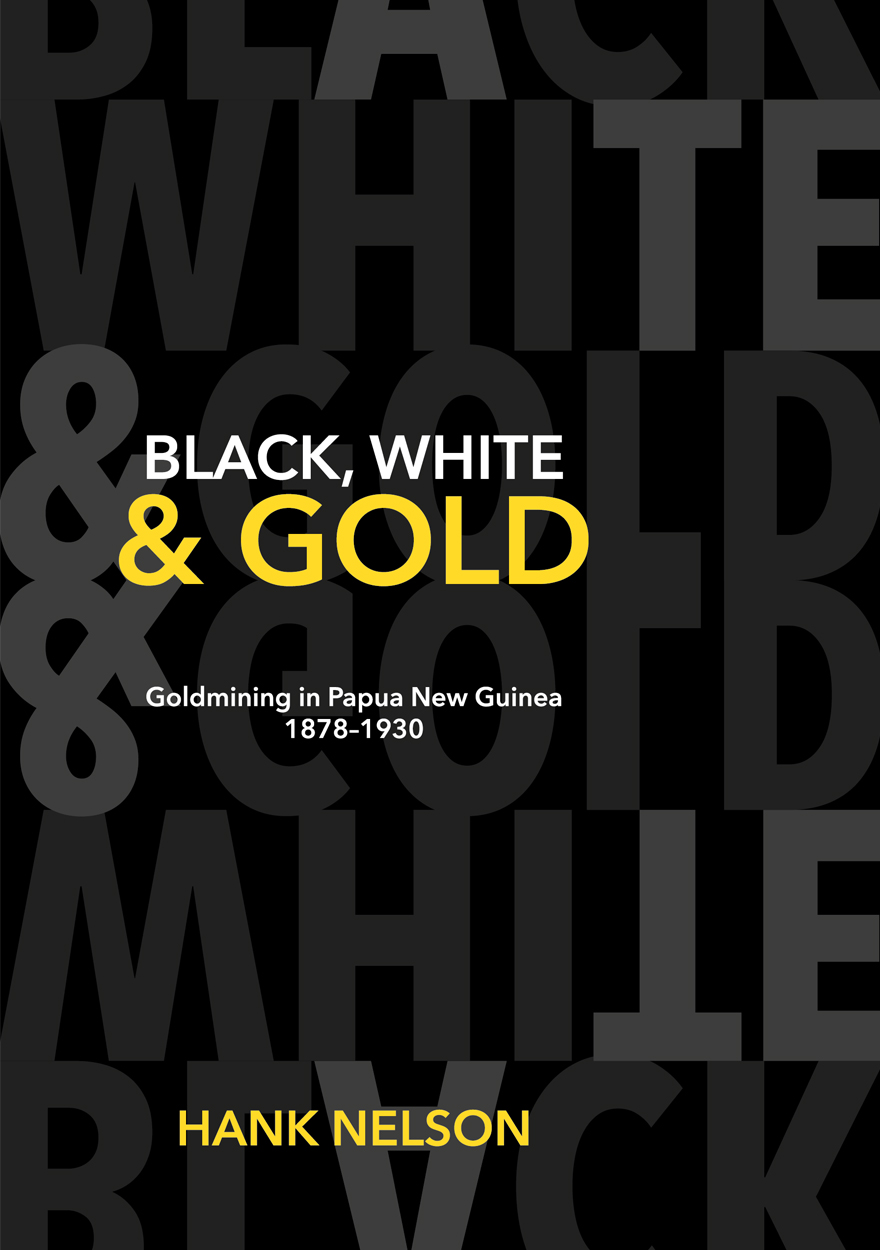
Black, White and Gold »
Goldmining in Papua New Guinea 1878–1930
Authored by: Hank Nelson
Publication date: July 2016
Australian goldminers were among the first white men to have sustained contact with Papua New Guineans. Some Papua New Guineans welcomed them, worked for them, traded with them and learnt their skills and soon were mining on their own account. Others met them with hostility, either by direct confrontation or by stealthy ambush. Many of the indigenous people and some miners were killed.
The miners were dependent on the local people for labourers, guides, producers of food and women. Some women lived willingly in the miners’ camps, a few were legally married, and some were raped.
Working conditions for Papua New Guineans on the claims were mixed; some being well treated by the miners, others being poorly housed and fed, ill-treated, and subject to devastating epidemics. Conditions were rough, not only for them but for the diggers too.
This book, republished in its original format, shows the differences in the experience of various Papua New Guinean communities which encountered the miners and tries to explain these differences. It is a graphic description of what happens when people from vastly different cultures meet. The author has drawn on documentary sources and interviews with the local people to produce, for the first time, a lively history.
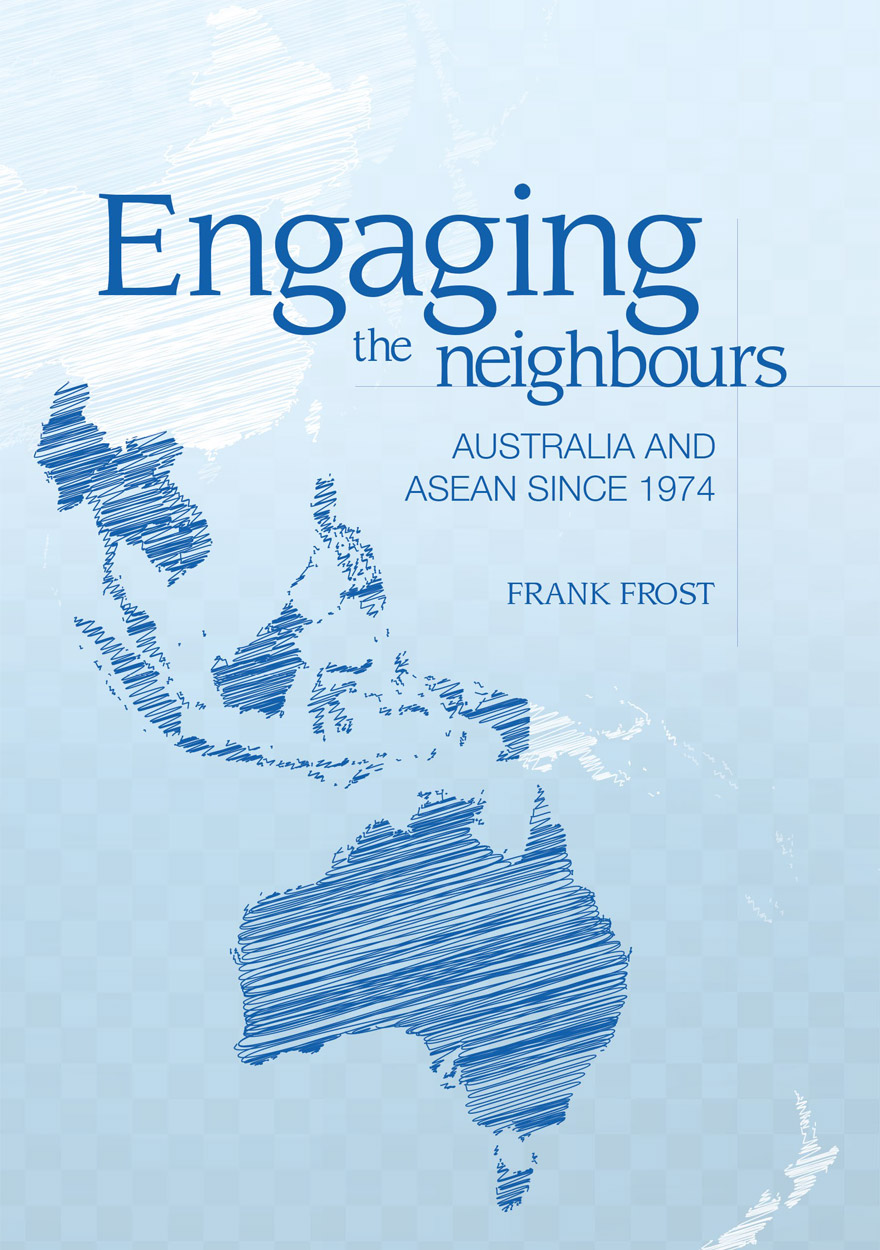
Engaging the neighbours »
Australia and ASEAN since 1974
Authored by: Frank Frost
Publication date: July 2016
From modest beginnings in 1967, the Association of Southeast Asian Nations (ASEAN) has become the premier regional institution in Southeast Asia. The 10 members are pursuing cooperation to develop the ‘ASEAN Community’ and also sponsor wider dialogues that involve the major powers. Australia has been interested in ASEAN since its inauguration and was the first country to establish a multilateral link with the Association, in 1974. Australia and ASEAN have subsequently engaged and cooperated on many issues of mutual concern, including efforts to secure an agreement to resolve the Cambodia conflict (signed in 1991), the initiation of the Asia-Pacific Economic Cooperation grouping (1989) and the ASEAN Regional Forum (1994), the conclusion of the ASEAN–Australia–New Zealand Free Trade Agreement (signed in 2008) and the development of the East Asia Summit (from 2005).
This book provides the first available detailed history of the evolution of Australia’s interactions with ASEAN. It assesses the origins and phases of development of Australia’s relations with ASEAN; the role ASEAN has played in Australian foreign policy since the 1970s; the ways in which the two sides have collaborated, and at times disagreed, in the pursuit of regional stability and security; and the key factors that will influence the relationship as it moves into its fifth decade.
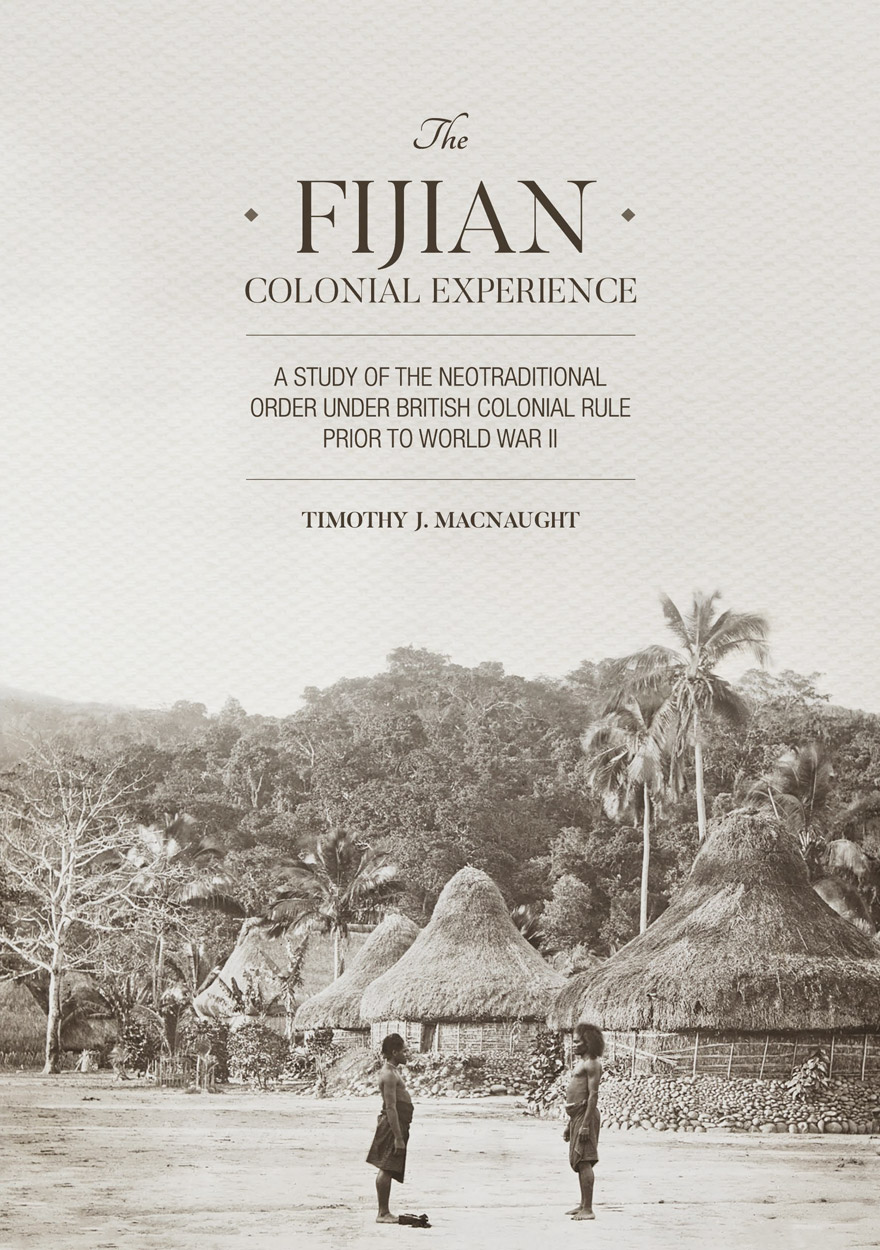
The Fijian Colonial Experience »
A study of the neotraditional order under British colonial rule prior to World War II
Authored by: Timothy J. Macnaught
Publication date: June 2016
Indigenous Fijians were singularly fortunate in having a colonial administration that halted the alienation of communally owned land to foreign settlers and that, almost for a century, administered their affairs in their own language and through culturally congenial authority structures and institutions. From the outset, the Fijian Administration was criticised as paternalistic and stifling of individualism. But for all its problems it sustained, at least until World War II, a vigorously autonomous and peaceful social and political world in quite affluent subsistence — underpinning the celebrated exuberance of the culture exploited by the travel industry ever since.

Narrow But Endlessly Deep »
The struggle for memorialisation in Chile since the transition to democracy
Authored by: Peter Read, Marivic Wyndham
Publication date: June 2016
On 11 September 1973, the Chilean Chief of the Armed Forces Augusto Pinochet overthrew the Popular Unity government of Salvador Allende and installed a military dictatorship. Yet this is a book not of parties or ideologies but public history. It focuses on the memorials and memorialisers at seven sites of torture, extermination, and disappearance in Santiago, engaging with worldwide debates about why and how deeds of violence inflicted by the state on its own citizens should be remembered, and by whom.
The sites investigated — including the infamous National Stadium — are among the most iconic of more than 1,000 such sites throughout the country.
The study grants a glimpse of the depth of feeling that survivors and the families of the detained-disappeared and the politically executed bring to each of the sites. The book traces their struggle to memorialise each one, and so unfolds their idealism and hope, courage and frustration, their hatred, excitement, resentment, sadness, fear, division and disillusionment.
‘This is a beautifully written book, a sensitive treatment of the issues and lives of those who have faced a great deal of loss, most often as unsung heroes, in what are now recognized as Chilean sites of memory. The book is a testament to people who have not been asked to speak, until Peter Read and Marivic Wyndham ask them to tell their stories. They do not shy away from hard tensions about memorialization, the difficulties of challenging a powerful state and the long and arduous struggles to ensure less powerful voices are heard.’
— Professor Katherine Hite, Frederick Ferris Thompson Chair of Political Science, Vassar College, USA.

War, Strategy and History »
Essays in Honour of Professor Robert O’Neill
Edited by: Daniel Marston, Tamara Leahy
Publication date: May 2016
This is a collection of essays in honour of eminent Professor Robert O’Neill. Each chapter was written by prominent academics and practitioners who have had a professional connection with Professor O’Neill during his long and distinguished career. The overarching themes running throughout the book are war, strategy and history. All the essays are shaped by the role that Professor O’Neill has played over the last 50 years in the debates in Australia, Europe and the US. This book covers not only Professor O’Neill’s impressive career, but also the evolution of strategy in practice, and of strategic studies as an internationally recognised academic discipline.



